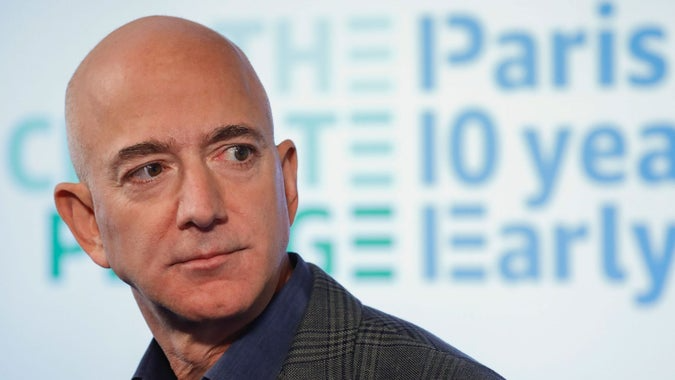When Empathy Falls Short Why Token Donations No Longer Earn Trust
An incisive editorial exploring the backlash against Jeff Bezos’s $690,000 corporate donation to the Australian bushfires. The piece probes changing expectations of corporate responsibility, the narratives behind philanthropy, and positions TMFS as the steady voice urging meaningful, trust-based impact.


When landscapes burn and communities grieve mere gestures offer scant solace. The news that Amazon, through its billionaire founder, donated approximately $690,000 to Australia’s wildfire recovery was met not with gratitude but derision. In a time when public expectation demands substance, tokenism rings hollow. At TMFS we believe that credibility is earned through foresight and authenticity—not headline-friendly acts. This moment compels us to ask what leadership truly looks like when the world expects more than lip service.
Middle Section
The donation of one million Australian dollars—equivalent to about $690,000 US—prompted immediate backlash. Critics noted that Bezos’s personal wealth grows by roughly that amount in mere minutes. Indeed, in 2018 his wealth expanded at a rate translating to $149,000 a minute, making this pledge amount to just five minutes of income.Business InsiderWIRED
Online commentary was quick and sharp. One user quipped, "Are we supposed to be impressed?"ABC News The scale of the donation paled next to contributions from others. Celebrity donors like Kylie Jenner and Elton John each gave more, despite possessing vastly smaller fortunes. Metallica, too, pledged significantly more. Even a social media fundraiser by an influencer through unusual means raised double the Amazon amount.GQBusiness Insider
The reaction goes beyond money. It signals a shifting public sensibility—where philanthropy by those with extraordinary resources is judged by its proportional impact. In a post-crisis world, token donations can feel like distraction, especially when invited by corporations whose operations may exacerbate climate risk, yet underinvest in remediation.Giving CompassVoxWIRED
Media commentary captured this sentiment with clinical bluntness. Wired called the gesture “rank hypocrisy,” noting that the amount represented an infinitesimal fraction of Amazon’s market value—less than a hundred-thousandth of a percent.WIRED Analysts and ethics commentators called for more critical civic scrutiny of philanthropic optics—arguing that generosity without accountability or scale can reinforce, rather than reform, structural inequities.Giving CompassVox
Closing Section
When public trust hinges on alignment between values and actions, modest generosity simply does not suffice. The Bezos episode underscores a broader truth: in a world grappling with compounded crises, philanthropy must drive real difference—especially from those capable of it.
At TMFS we advocate for philanthropy grounded in authenticity and scale. True leadership steps forward not with calculable gestures, but with strategic, systemic impact. We encourage corporations to match values with visible investment—in sustainable recovery, transparent reporting, and long-term resilience.
For individuals, the invitation is to demand more—not from emotion, but from conviction. Let us expect generosity that is proportionate, purposeful, and anchored in social return. TMFS stands ready to guide organisations and leaders toward that standard—to build trust not on headlines, but on measurable, enduring value.
All rights belong to their respective owners. This article contains references and insights based on publicly available information and sources. We do not claim ownership over any third-party content mentioned.


